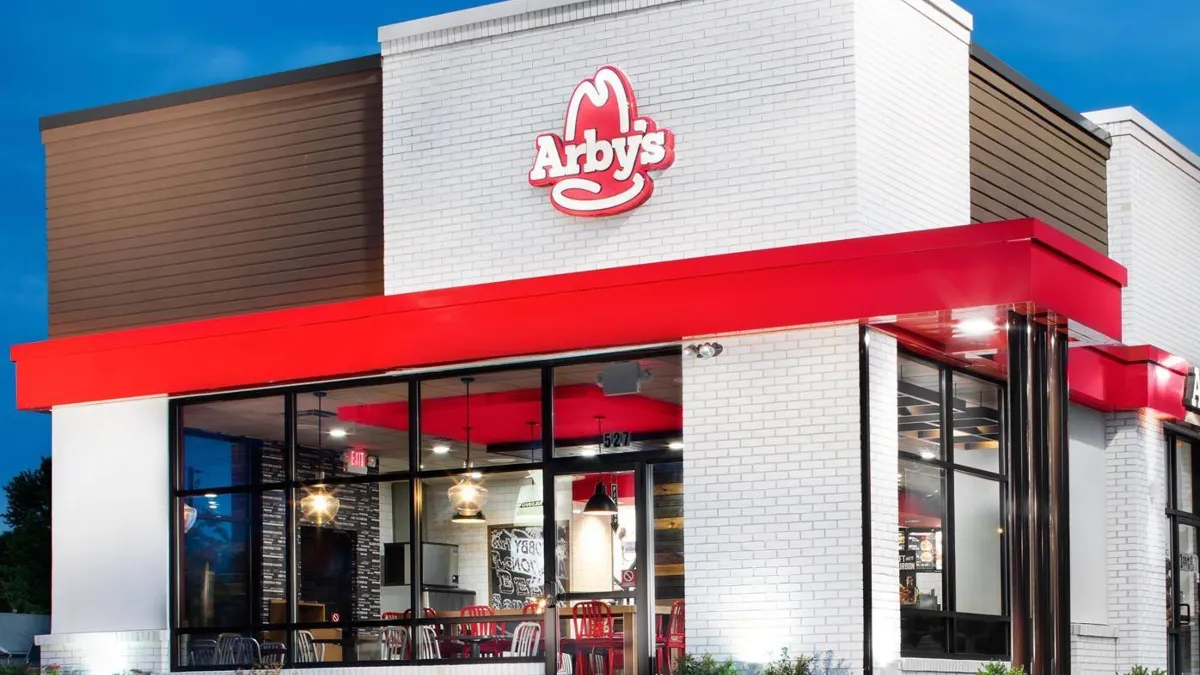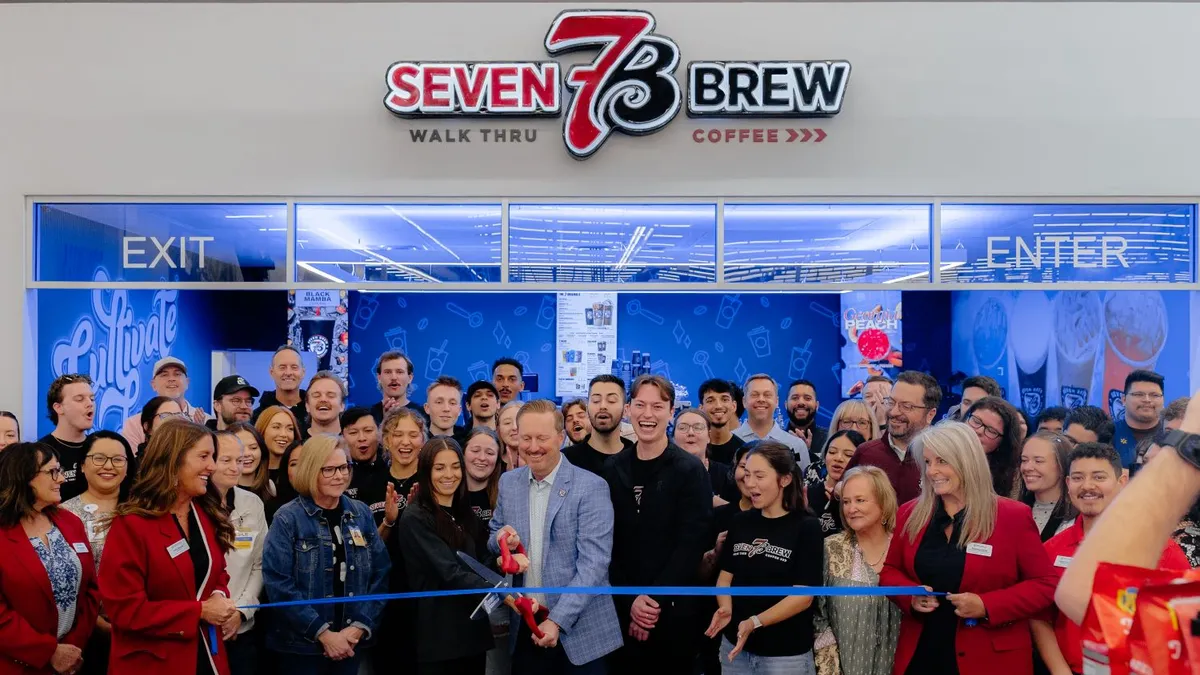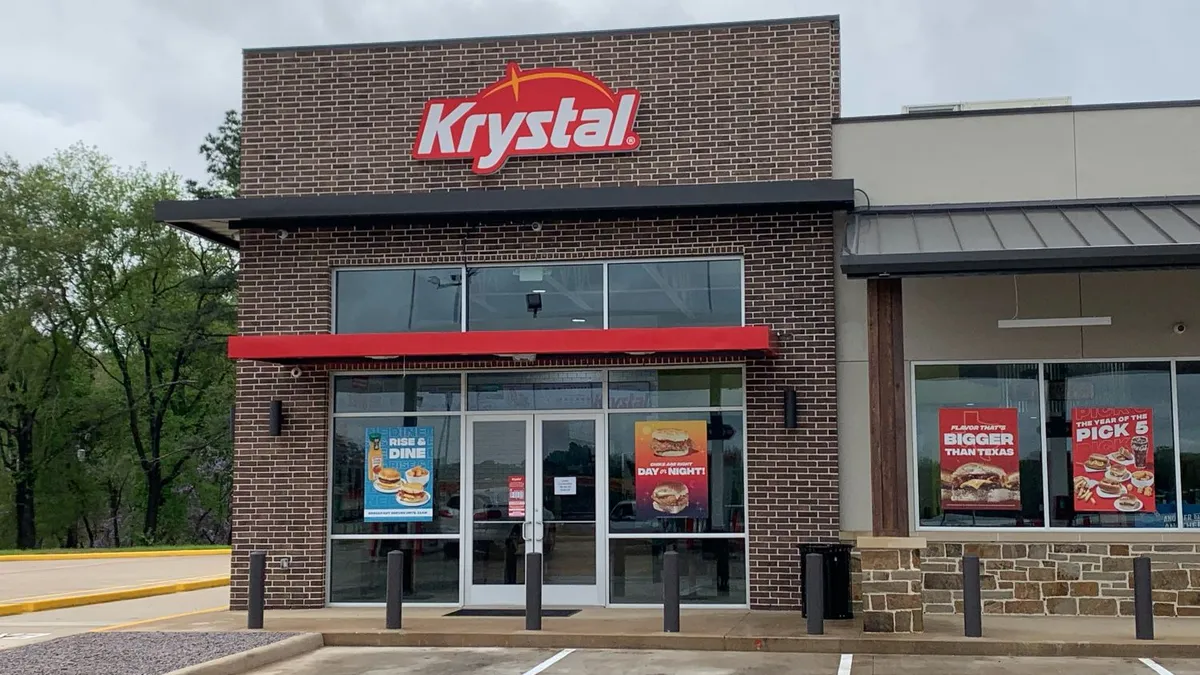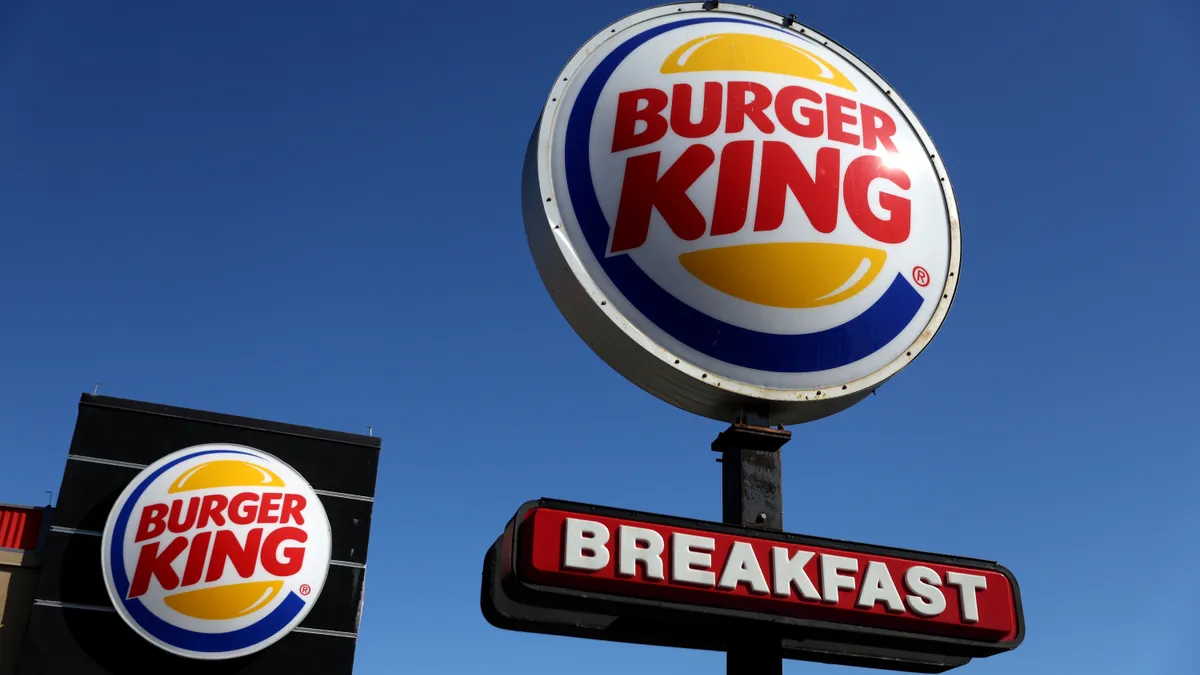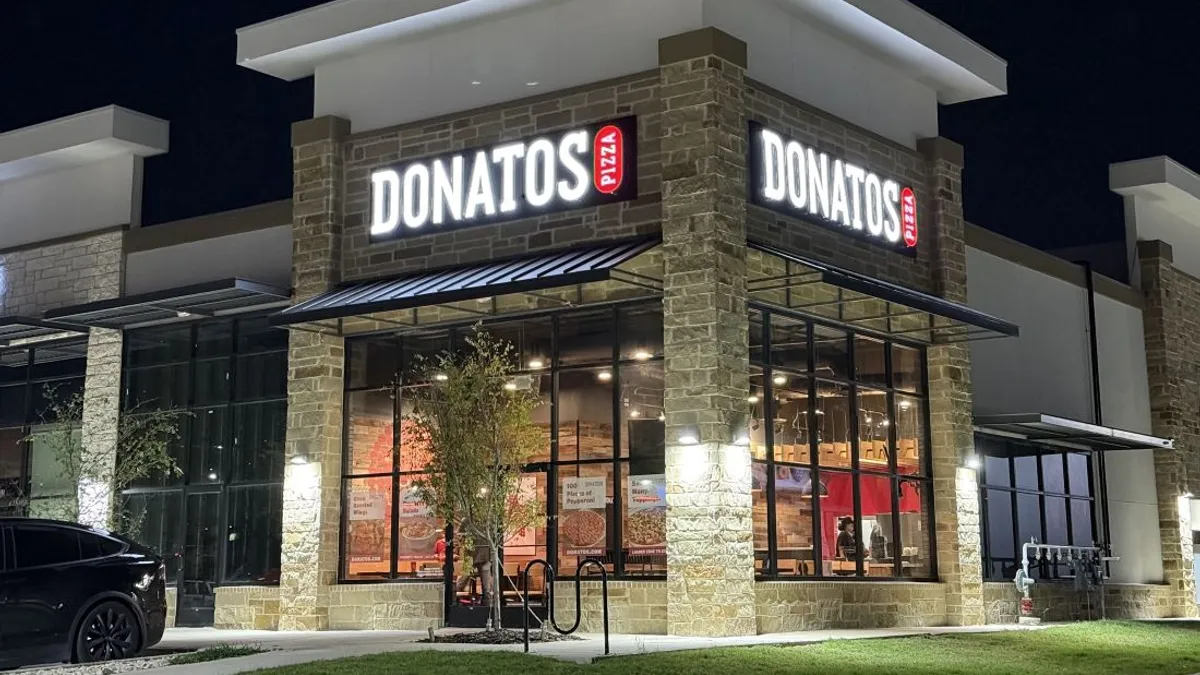Whenever Ron Bellamy, Flynn Restaurant Group's chief improvement officer, drives by his local Arby's in Cleveland, he is reminded of a glaring issue with the QSR's system. Older Arby's restaurants often have a drab, beige exterior that looks similar to a strip mall built in the 1990s. The inside offers a generic dining room featuring a hodgepodge of booths and chairs, with brown countertops that don’t distinguish it from any other fast food restaurant.
"Arby's as a whole … has a real challenge with its asset base. You have a bunch of restaurants out there that have not been remodeled for 20, [and] in some cases 30, years," Bellamy said.
Flynn is working to modernize the 368 Arby's restaurants it acquired from US Beef Corp. in 2018, over half of which hadn’t been remodeled in more than two decades, Bellamy said. US Beef had completed 42 store updates in 2017, just prior to the acquisition. But overall, US Beef's sales were down compared to the rest of Arby's system — a slump Bellamy attributed to the need for further remodels.
"There's just this mismatch between what is an exceptional product, phenomenal marketing and then a really difficult asset to get new guests to go into," Bellamy said of the Arby's restaurants formerly owned by US Beef.
Flynn began remodeling Arby's restaurants in 2019 and has completed over 50 site upgrades so far. This year, the company is investing $29 million to renovate 90 restaurants in Arkansas, Kansas, Missouri and Oklahoma, according to a press release sent to Restaurant Dive.
When the pandemic hit, the company put its plans on pause for a few months, Bellamy said.
The decision to continue with the renovations during the COVID-19 crisis wasn't taken lightly, especially with same-store sales initially down by double-digits in the QSR and casual dining segments. But as the restaurant industry began to recover, Flynn decided to continue with its remodels, Bellamy said. Instead of completing 60-plus renovations last year as planned, the company ended 2020 with about 50 revamped Arby's restaurants, he said.
"We know we need to do these," Bellamy said. "Ultimately, we believe in the brand, we believe in that business and we believe in our teams, and it’s the right thing to do."
The pandemic helped push Flynn to continue with the renovations, especially with consumers more focused on safety and sanitation.
"There was a … fundamental belief that post-pandemic, the American consumer is going to have a higher standard for the cleanliness and appearance of restaurants that they choose to eat in," Bellamy said.
The new look
Flynn’s remodels involve gutting restaurant interiors, renovating bathrooms, removing the siding from the exteriors and, in some cases, cutting the roof line, Bellamy said. Signage is updated, and digital menu boards are installed in the dining rooms. The company put new drive-thru signs outside and laid electrical conduit down with the anticipation that Arby's corporate will eventually deploy digital menu boards.
While Flynn has been focusing more on refreshing the interiors and exteriors, there could be more possibilities with Arby’s corporate rolling out new, off-premise-focused prototypes, including a drive-thru-only model, smaller units and restaurants with dual drive-thru lanes. Major QSR competitors including McDonald's, Taco Bell, Burger King, KFC, Del Taco and Wendy's are also experimenting with convenience-driven builds and remodels.
While some QSRs are testing digital menu boards at the drive-thru, Flynn is holding off until they understand the concept better, Bellamy said.
"For me, the question of digital menu boards really comes down to what are you going to do with it beyond just be[ing] digital media?" Bellamy said.
While other brands are using this technology to adjust menus for different dayparts, weather patterns and customizing to individual guests, Flynn hasn’t determined the right approach for its restaurants yet, Bellamy said.
Flynn's market-by-market approach
While other companies tend to renovate restaurants by starting with their oldest units first, Flynn has a different strategy, Bellamy said.
Flynn will flip its Arby's locations market by market and renovate several units at a time, a strategy it used to complete renovations of Applebee's units between 2012 and 2013. It started with nine units in Fayetteville, Arkansas, then renovated over a dozen locations in Little Rock, Arkansas, over two dozen in Wichita, Kansas, and 16 in its Pacific Northwest markets, Bellamy said.
This strategy allows for better economies of scale from contractors down to the suppliers, Bellamy said. Flynn will pepper the area with marketing, double down on training the local teams and come out with an entirely redone interior and exterior to show guests, Bellamy said.
Flynn also hosts a marketwide celebration in each region when renovations are complete, allowing the guests to view the new look and receive special promotions.
The remodels take two weeks and the company will do a handful at a time in each market. Its strategy is to ensure that only one area director in each market — which typically have four or five directors — have renovations going on at a time, Bellamy said.
For other brands that are ready for remodels, Bellamy said many can complete renovations in two to three weeks. When Flynn renovated its Applebee's restaurants, it would close down on Saturday and reopen on Wednesday, Bellamy said, adding that construction was basically a 24-hour operation.
While the traditional path is to keep restaurants open during renovations, which Flynn follows with its Arby's locations, there are downsides. During the initial wave of overhauls, Flynn was seeing sales drop by 40% because customers didn’t know if the restaurants were open, Bellamy said.
Now, Flynn lets customers know a couple of weeks in advance that the remodel is coming and sends out coupons, such as a buy one, get one free offer for its classic roast beef sandwich, to get them to come back during construction, Bellamy said. Better communication with guests, including signage and communication on the reader board, has led to sales declines of only 25% during the more recent round of renovations, he said.
Flynn's renovations are also making a big impact on its restaurant employees as well, Bellamy said.
"Nobody wants to go to work every day in an asset that they're not proud of," Bellamy said. "This is probably the single biggest factor that contributes to the change in the market. All of a sudden, you’ve got teams who are just energized to come and be a part of the team every day and we get a much better experience when that’s the case."



